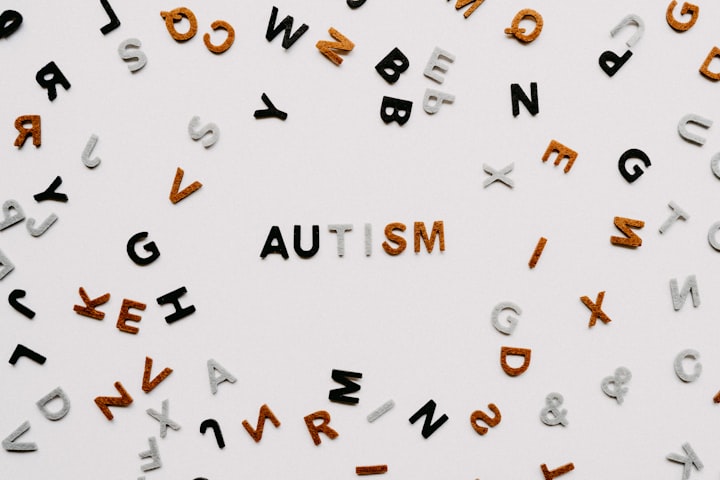Schizophrenia
By: Mahpara Mukhtar | Date: June 11, 2023

Schizophrenia is a complicated mental health problem that is hard to make sense of put together; many people tend to confuse Schizophrenia with multiple personality disorders, but has no connection with it whatsoever. "Schizophrenia is a chronic, severe mental disorder that affects the way a person thinks, acts, expresses emotions, perceives reality, and relates to others" (Bhandari, 2022). It can also be defined as: "Schizophrenia refers to both a single condition and a spectrum of conditions that fall under the category of psychotic disorders" (Cleveland Clinic, 2018). Many behaviors or experiences may be a part of this disorder; or the behaviors could be due to schizophrenia. "When schizophrenia is active, symptoms can include delusions, hallucinations, disorganized speech, trouble with thinking and lack of motivation" (American Psychiatric Association, 2020).
Any type of "disconnection" from reality that a person feels under these circumstances is a result of these situations. There are several ways in which such disconnections might occur. According to research, men and women experience schizophrenia in about similar amounts, while men may experience the disease's start sooner. Worldwide, rates are comparable. Due to high incidence of co-occurring illnesses including diabetes and heart disease, people with schizophrenia are more likely to pass away earlier than the general population.
Symptoms
Men often begin to exhibit symptoms of the illness in their late teens or early twenties. Women in their early 20s and 30s are most commonly affected. The first onset in which the symptoms occur are psychosis, which is often called the prodromal period. It is hard t0 notice such symptoms because there is no such specific trigger for it to be shown. Due to this, it may take years to notice and lasts for days, weeks or even years. However, there may be subtle changes in behavior that can be noticed, such as:
- Social withdrawal
- Trouble concentrating
- Temper flares
- Difficulty sleeping
Aside from that, there are some more symptoms that allude to extraneous ideas or acts that aren't grounded in reality. These symptoms include:
- Delusions: these are false, contradictory, and occasionally bizarre ideas that the individual holds despite being confronted with evidence to the contrary, and that they stubbornly refuse to let go of.
- Hallucinations: these entail fictitious experiences. The most frequent hallucination in those with schizophrenia is hearing voices. The voices may criticize the person's actions, scold them, or issue orders.
Disorganized symptoms
These are the symptoms that indicate a person's inability to think clearly or react appropriately. Such as:
- Moving slowly
- Being unable to make decisions
- Having problems making sense of everyday sights, sounds, and feelings
- Repeating movements or gestures, like pacing or walking in circles
Negative Symptoms
These symptoms don't necessarily mean bad symptoms, this indicates the lack of typical behaviors in those with schizophrenia is noted. These symptoms include:
- Less energy
- Speaking less
- Withdrawal from family, friends, and social activities
- Lack of motivation
Causes
The exact cause of Schizophrenia is unknown, just like the rest of the other disorders. However, schizophrenia is a genuine disease with a biological foundation, much like cancer and diabetes; because it is known as a chronic brain disorder, according to scientists. Numerous factors have been discovered by researchers that may increase a person's risk of developing schizophrenia, including:
- Genetics - this is one of the highly likely occurring risk factor that scientists have tended to research a lot about. This condition has a long line of family history, according to research. There may be an increased chance of a child getting the illness if one of their parents, siblings, or other close relatives already has it. But scientists don't think this illness can be attributed to a single gene. They believe a person might become more sensitive through a combination of genes.
- Environmental - these variables may interact with others and raise your risk of developing schizophrenia, however they may not necessarily cause the disorder on their own. Some of the environmental risks include childhood trauma, migration, social isolation, birth and pregnancy difficulties, and etc. The scientists have theorized that the combination of multiple risks and factors is what led to the development of schizophrenia; especially in the early onset of the disorder.
- Biological changes in the brain - as a person thinks or moves, physicians can now analyze the brain in real time thanks to advancements in technology; magnetic resonance imaging (or functional MRI) is the term used for this. People with schizophrenia have been found to have structural alterations in their brains, both in the white and gray matter. For instance, in some individuals with schizophrenia, the ventricles—fluid-filled cavities—at the middle of the brain are bigger. Some of the other observations made by the scientists include - "a reduction in the volume of the temporal lobes, changes in the white matter connections in the temporal and frontal lobes, and decreased total brain size" (PsychCentral, 2021).
Treatment
Schizophrenia is a disorder that has no cure and is a life-long treatment. However, such treatments are used to reduce the severity of the symptoms, helping in managing the condition. Some of the forms of treatments include:
Therapy
- Cognitive behavior therapy (CBT) - the person may be able to modify their behavior and thinking as a result. They will be taught coping mechanisms for voices and hallucinations by a therapist. Eventually, with the help of CBT sessions and medication, they will be able to identify what causes their psychotic episodes—periods when hallucinations or delusions flare up—and learn how to stop or lessen them.
- Cognitive enhancement therapy (CET) - also known as cognitive remediation; it teaches individuals how to more accurately identify social cues or triggers and enhances their capacity for paying attention, remembering details, and planning thoughts. It incorporates both group sessions and computerized brain training.
Medications
- Atypical Antipsychotic medications - these drugs have an impact on brain chemistry. By influencing the concentration of molecules thought to be associated with the illness, they aid in symptom reduction. Aripiprazole (Abilify) , Asenapine (Saphris), and Lumateperone tosylate (Caplyta). However, when starting an antipsychotic drug, many patients have adverse effects such weight gain, dry mouth, restlessness, and tiredness. While some of these adverse effects could disappear with time, others might not.
- Typical Antipsychotic medications - Their classification depends on the chemical structure. Acute mania, agitation, and bipolar illness have all been treated with these medications since they were first created for the treatment of psychosis. In addition to muscular stiffness, slowness, and tremor, these drugs can result in major movement issues that might be acute and short-term (dystonia) or develop over time (known as tardive dyskinesia). Some examples of these medications include - Chlorpromazine (Thorazine) , Fluphenazine (Prolixin) , and Haloperidol (Haldol), etc.
Summary
Being diagnosed with schizophrenia may have a profoundly unpleasant impact on one's life. The development of this condition may be influenced by a mix of biological, environmental, and genetic variables, but considerable study is still being done in this area. Despite the fact that it is unclear if it contributes to schizophrenia's etiology, some individuals with the disorder may also have abnormalities in their brain's structure and function.
A person with schizophrenia may benefit from a variety of treatments to help them manage their symptoms. However, the symptoms may be controlled with assistance, a treatment plan, and coping mechanisms. Numerous physical activities and maintaining relationships with loved ones are the greatest ways to manage and support someone who has schizophrenia.
It is advisable to seek expert assistance if a loved one is having trouble coping with the signs of schizophrenia as well as to offer them encouragement and support. Helping patients recover and manage this disease may greatly benefit from early diagnosis and treatment. In the event of a chronic disease, you might merely want to minimize the severity of the symptoms.
Due to the amount of stress a person with Schizophrenia has to go through, it could also lead to other psychological issues and disorders. These disorders include - depression, anxiety, and many more. Which could eventually increase the risk of the person developing health problem and issues.
References:
Pugle, M. (2021). How Schizophrenia Is Treated. [online] Verywell Health. Available at: https://www.verywellhealth.com/how-schizophrenia-is-treated-5114061 [Accessed: 12 Jun. 2023].
WebMD (2016). Schizophrenia Treatment:Types of Therapies and Medication. [online] WebMD. Available at: https://www.webmd.com/schizophrenia/schizophrenia-therapy [Accessed: 12 Jun. 2023].
National Institute of Mental Health (2021). NIMH» Schizophrenia. [online] www.nimh.nih.gov. Available at: https://www.nimh.nih.gov/health/publications/schizophrenia [Accessed: 12 Jun. 2023].
PsychCentral (2021). What Causes Schizophrenia? [online] Psych Central. Available at: https://psychcentral.com/schizophrenia/causes-of-schizophrenia#takeaway [Accessed: 12 Jun. 2023].
Holland, K. (2020). 5 Schizophrenia Causes: Plus, How to Treat and Seek Help. [online] Healthline. Available at: https://www.healthline.com/health/schizophrenia-causes#takeaway [Accessed: 12 Jun. 2023].
Mind (2020). About schizophrenia | Mind, the mental health charity - help for mental health problems. [online] Mind.org.uk. Available at: https://www.mind.org.uk/information-support/types-of-mental-health-problems/schizophrenia/about-schizophrenia/ [Accessed: 12 Jun. 2023].
Cleveland Clinic (2018). Schizophrenia. [online] Cleveland Clinic. Available at: https://my.clevelandclinic.org/health/diseases/4568-schizophrenia [Accessed: 12 Jun. 2023].
American Psychiatric Association (2020). What is schizophrenia? [online] Psychiatry.org. Available at: https://www.psychiatry.org/patients-families/schizophrenia/what-is-schizophrenia [Accessed: 12 Jun. 2023].
Bhandari, S. (2022). Schizophrenia: An Overview. [online] WebMD. Available at: https://www.webmd.com/schizophrenia/mental-health-schizophrenia [Accessed: 12 Jun. 2023].
NHS (2019). Overview - schizophrenia. [online] nhs.uk. Available at: https://www.nhs.uk/mental-health/conditions/schizophrenia/overview/ [Accessed: 12 Jun. 2023].
About the Creator
Enjoyed the story? Support the Creator.
Subscribe for free to receive all their stories in your feed. You could also pledge your support or give them a one-off tip, letting them know you appreciate their work.





Comments
There are no comments for this story
Be the first to respond and start the conversation.